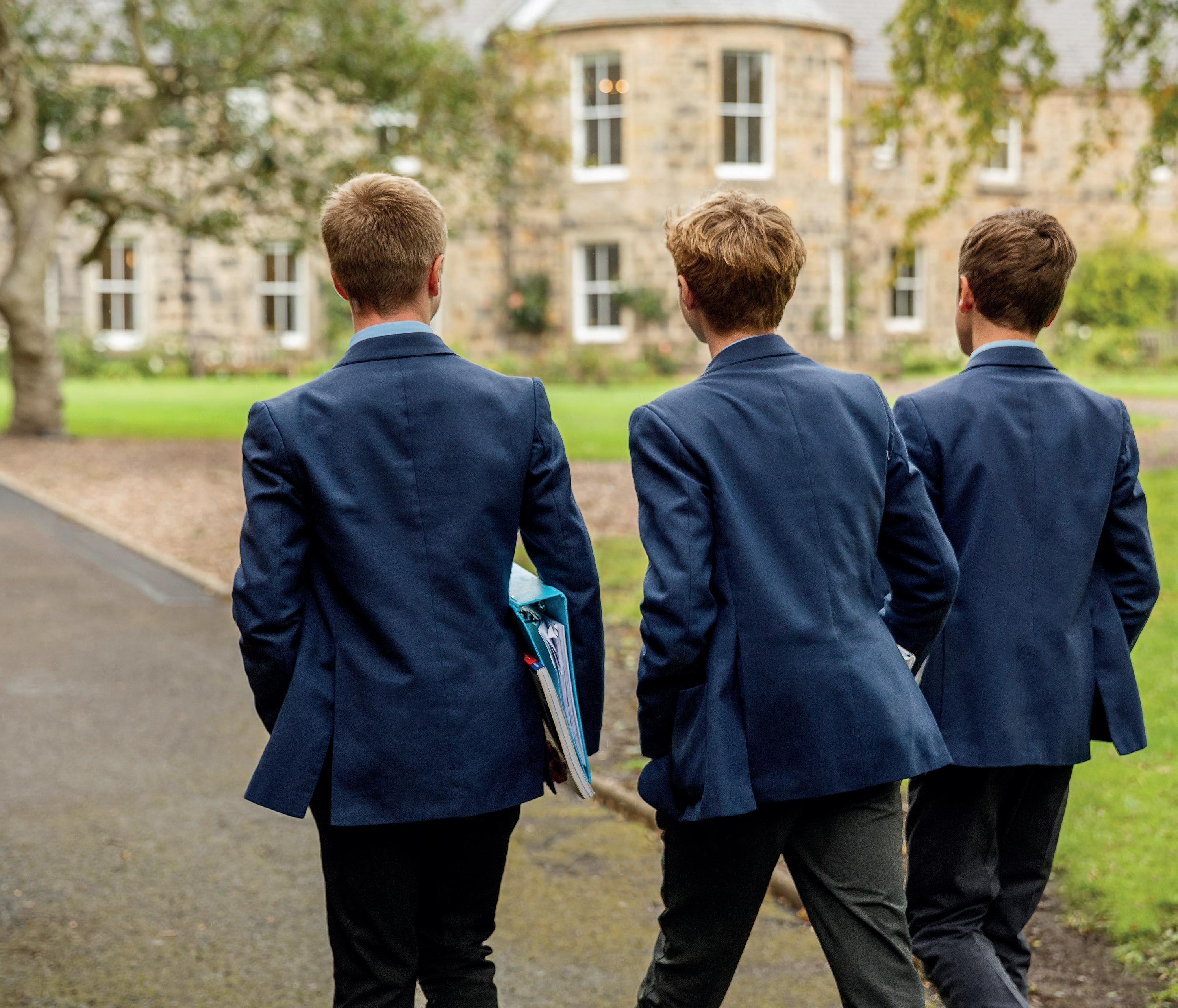

GCSE Choices
2025 - 2027








GCSE Choices
2025 - 2027





Our GCSE courses in Years 10 and 11 serve as excellent preparation for entry into the Sixth Form at St Leonards. You will be taught by specialist teachers over two years whose passion for their subject will be shared with you, and whose determination for you to succeed is their top priority. Studying for your GCSE examinations requires hard work and dedication, and you will be rewarded with a great sense of achievement as the courses progress. Remember to keep your options open. Focus on your strengths and seek advice on how your choices might influence your Sixth Form pathways in two years’ time – at St Leonards, pupils choose either the International Baccalaureate Career-related Programme or Diploma Programme. Selecting subjects for the future is exciting, and we are here to guide you through these important decisions – ask your parents, teachers, friends and Head of Year about your choices.
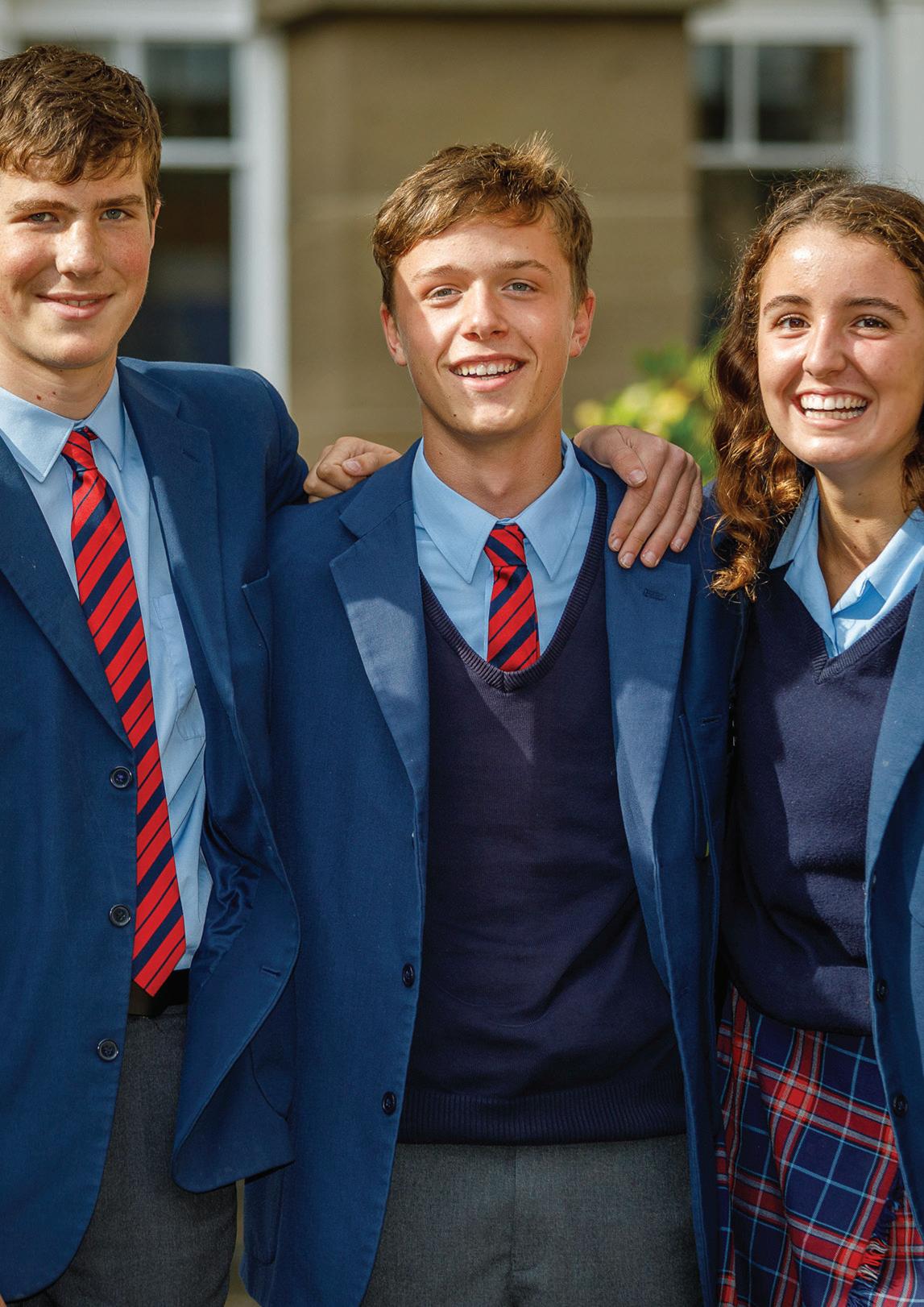
Your Guide to GCSE Choices (current pupils only)

• End of the Autumn Term – GCSE Course Choice Booklet given to Year 9 pupils, along with choices form.
• January – Initial completion of GCSE choices form, following parents’ evening and discussion with tutors.
• End of February Half Term – Deadline for any final changes made to choices form.
• June – Choices revisited with reference to Year 9 end of year results.
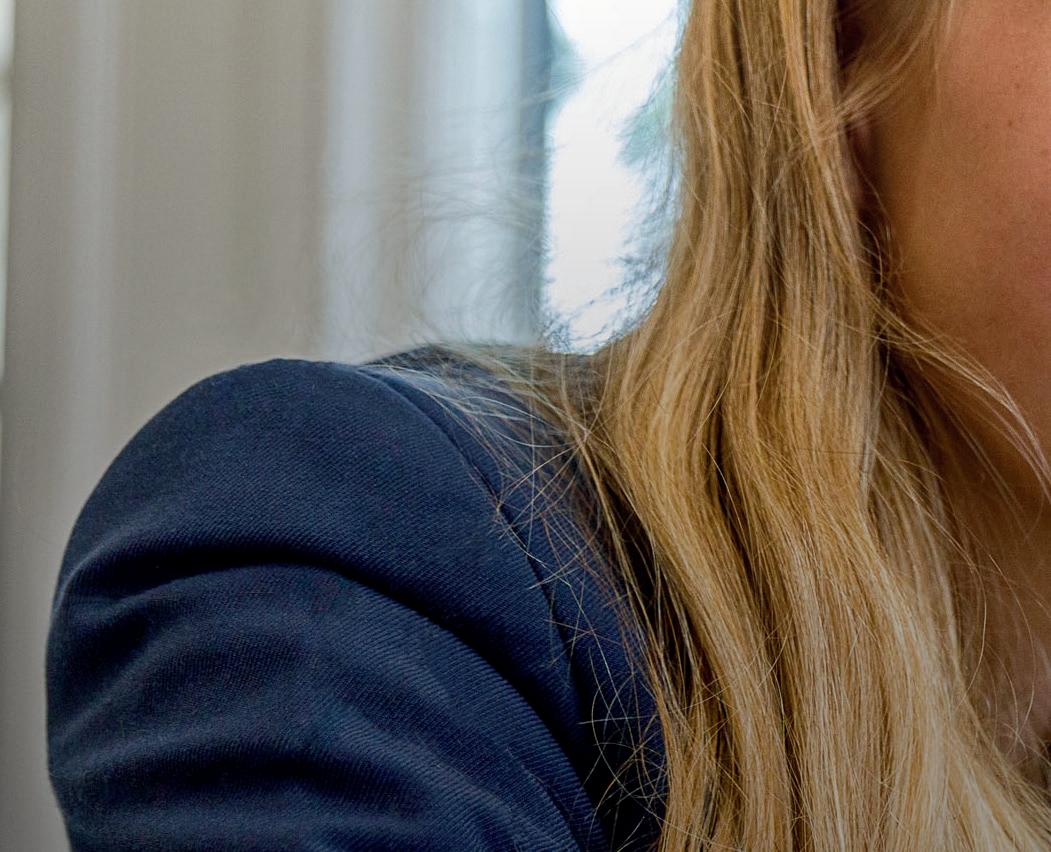

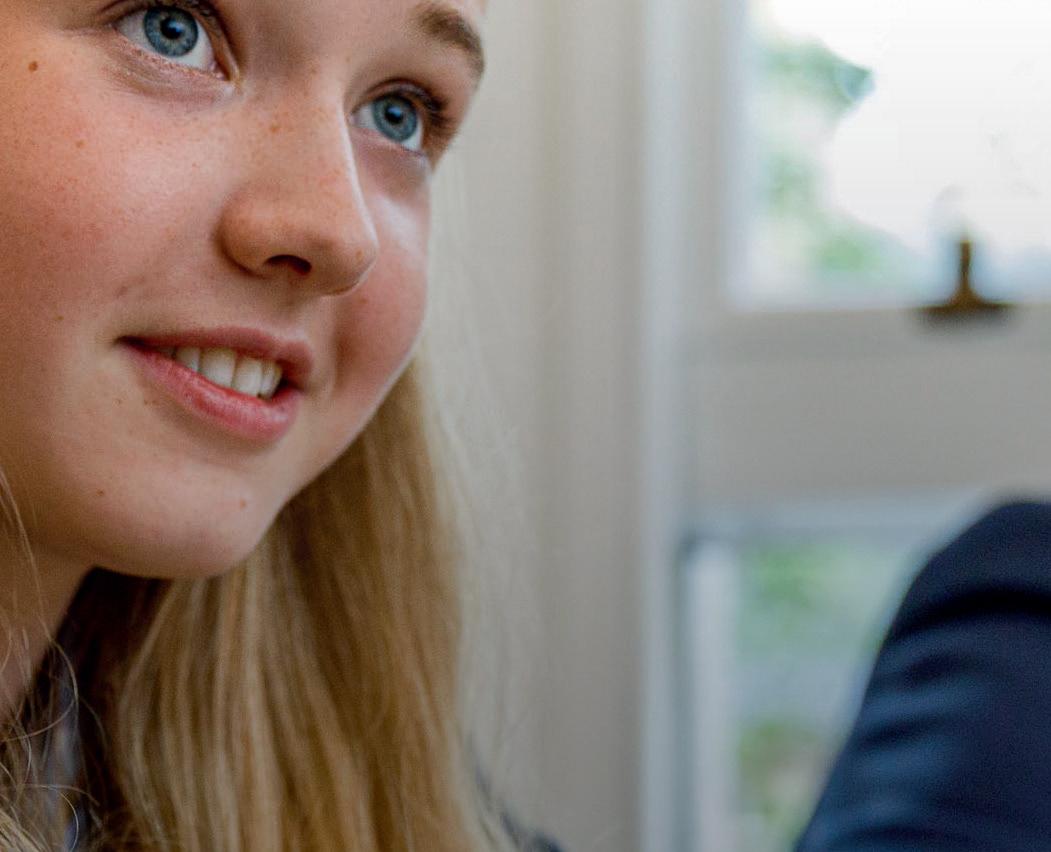

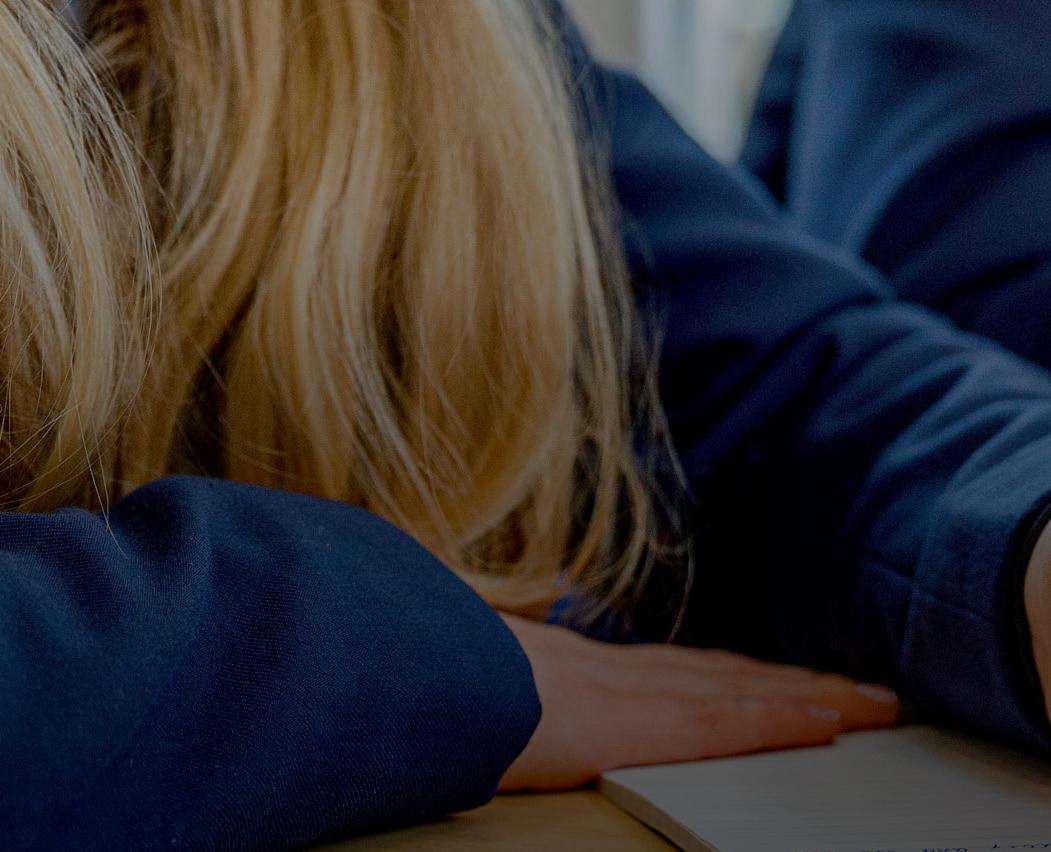
All pupils take English Language and Literature, Mathematics, a Modern Foreign Language (unless taking an EAL course) and Trilogy Science. These core pillars of the curriculum are studied alongside optional GCSE subjects.
In addition, all pupils participate in Core PE and Games lessons, and their learning is further enriched by the Ad Vitam course, which covers health education, citizenship, careers education, personal development and study skills. Students will also study Philosophy as preparation for the Theory of Knowledge (TOK) component in the Sixth Form.
Each pupil must also provisionally choose 3 of the optional subjects. We appreciate that each pupil is an individual, and that fewer subjects at this stage might be more suitable for some. Such possible arrangements should be discussed with the Deputy Head (Academic) in the first instance.
The optional subjects on offer in Year 10 are French, German, Spanish, Latin, History, Geography, Art & Design, Music, PE, Computer Science and Drama.


In exceptional instances, the school can arrange for tuition in other languages and/or disciplines, with additional costs.
Please note that pupils are advised to choose either Geography or History as one of their options, as this keeps options open for the Individuals & Societies (Group 3) column for the IB Diploma. However, there are ‘new’ Sixth Form humanities subjects offered in this column, and so it is not compulsory to choose either History or Geography at this stage.
The ‘provisional’ choices of the pupils will lead to a 3-column arrangement of options being drawn up, which, as it is closely based on the provisional choices handed in by the year group, is different for each year group entering the GCSE programme.
Please note that although every effort is made to provide the courses listed in this booklet, all courses are offered subject both to demand by pupils and to reasonable demands on the teaching staff.
(in alphabetical order)
The Eduqas GCSE Art, Craft and Design course comprises a portfolio (60%) and an externally set assignment (40%).
Throughout the course, pupils will develop their skills across the four attainment outcomes:
AO1: Develop ideas through investigations, demonstrating critical understanding of sources.
AO2: Refine work by exploring ideas, selecting and experimenting with appropriate media, materials, techniques and processes.
AO3: Record ideas, observations and insights relevant to intentions as work progresses.
AO4: Present a personal and meaningful response that realises intentions and demonstrates understanding of visual language.
Throughout the course, students will investigate a wide range of media, building strong observational skills as they delve into personal experiences to generate unique ideas. In Year 10, this exploration occurs through ‘mini units’ using teacher-led stimulus, while in Year 11, students experience a heightened level of autonomy in shaping the Portfolio unit.
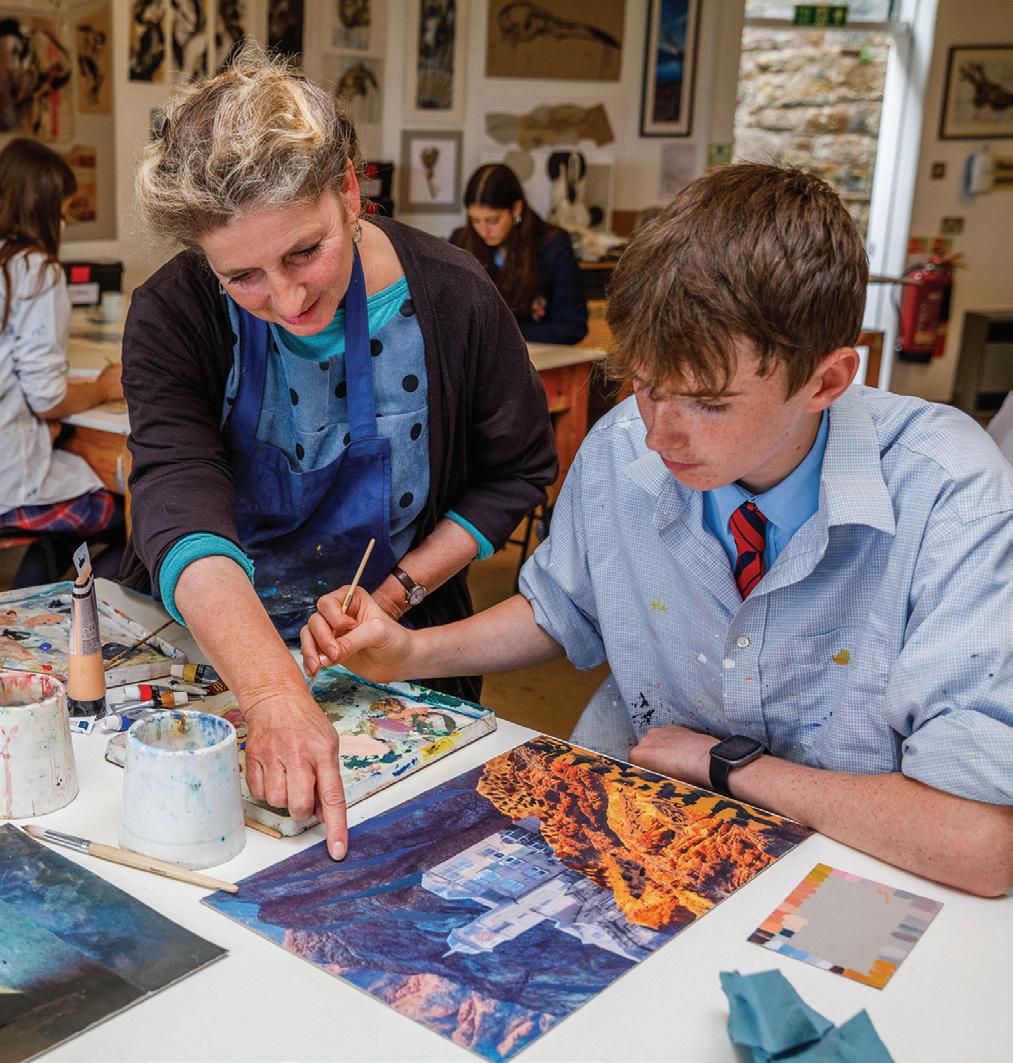
During the Spring Term, pupils will undertake the Externally Set Assignment, culminating in a two-day exam to conclude the unit.
For Year 10 students, there is an opportunity to participate in a trip to a European cultural city, aimed at enhancing their art skills and understanding of various artists. Additionally, there are after-school activities available, encouraging students to attend for practical skill development and to keep on top of their sketchbook work.
The Computer Science GCSE offered at St Leonards aims to help pupils:
• Understand and apply the fundamental principles and concepts of Computer Science, including abstraction, decomposition, logic, algorithms, and data representation;
• Analyse problems in computational terms through practical experience of solving such problems, including designing, writing and debugging programs;
• Think creatively, innovatively, analytically, logically and critically;
• Understand the components that make up digital systems, and how they communicate with one another and with other systems;
• Understand the impacts of digital technology to the individual and to the wider society; and
• Apply mathematical skills relevant to Computer Science.

At St Leonards, GCSE pupils work towards two separate qualifications: English Language and English Literature, following the Pearson Edexcel syllabus. The English Language course assesses reading skills, as well as transactional and imaginative writing. The English Literature course assesses reading and critical interpretation skills on texts from a range of genres and periods, including poetry, modern prose, modern drama and literary heritage texts. Both courses are assessed by an examination (60%), as well as an internally assessed and externally moderated piece of coursework or additional examination (40%).
The Pearson Edexcel IGCSE Geography course comprises two core components – physical and human geography – and uses case studies from around the UK and across the world to explore a variety of contemporary geographical issues that affect our future and the way in which we interact with the environment. As part of the course, pupils undertake fieldwork in our local coastal and urban environments, developing data collection skills which are assessed in the final examinations.
The topics studied include: coastal environments, hazardous environments, economic activity and energy, urban environments, and global issues (fragile environments and climate change). These are assessed by two written examinations at the end of the course.
At St Leonards, we follow the Pearson Edexcel IGCSE syllabus, which allows for a blend of both period-based and thematic History. The topics covered help to give students a context for the present day with a foundation of knowledge for international and race relations. The course comprises of:
• A historical investigation into Russia between 1905 and 1924, charting the journey from autocracy to revolution and the establishment of the communist Soviet Union;
• A Depth Study looks at this timeline from a German perspective, charting the recovery of Germany after World War I, the Weimar republic and the rise of fascism and dictatorship leading to World War II;
• A further Depth Study explores the USA, investigating the rise of civil rights and protest movements from 1945-74 in terms of race, gender, and attitudes towards communism and foreign wars;
• Lastly, a thematic Breadth Study investigates the changes in Medicine from 1845 to 1945, exploring the modern medical world as it emerges from wars, and scientific and technological innovation.
The course culminates in two 90-minute written examinations on two respective topics each. Each topic has three questions requiring pupils to analyse sources, synthesise knowledge and evidence, and present arguments in essay-style responses.
The GCSE course in Latin helps pupils to develop their skills in linguistic analysis, observation and expression – all of which are essential elements in translating incisively from one language to another. There is a prescribed list of 450 words to learn, most of which pupils will have already learned by the end of Year 9.
In addition to the unseen translation and comprehension paper, pupils study ancient texts in their original language. The prescribed literature is demanding but fun: pupils read about love in the Roman world, including a passage about Narcissus and Echo from Ovid’s Metamorphoses; a tense moment from Julius Caesar’s campaigns in Gaul when a Roman camp is under siege; Boudicca’s stirring speech before the battle in which she is finally defeated; and an account by Cicero on an incident in his brother’s less-than-ideal marriage. These texts give pupils an unrivalled insight into the ancient world, helping them to appreciate the influence of classical ideas on modern civilisation and languages.
Throughout the Pearson Edexcel IGCSE Mathematics course at St Leonards, pupils are supported to tackle known, new and different problems – the ultimate aim is that, by the end of the course, they have a strong set of numerical and problem-solving skills and enjoy seeing the power of mathematics at work. The course lays a strong foundation for the Diploma-level Mathematics courses which pupils will embark upon in their Sixth Form years.
At the end of the course, the pupils’ learning is assessed by two calculator papers. The department recommends the dual-powered Casio FX-9911EX model.
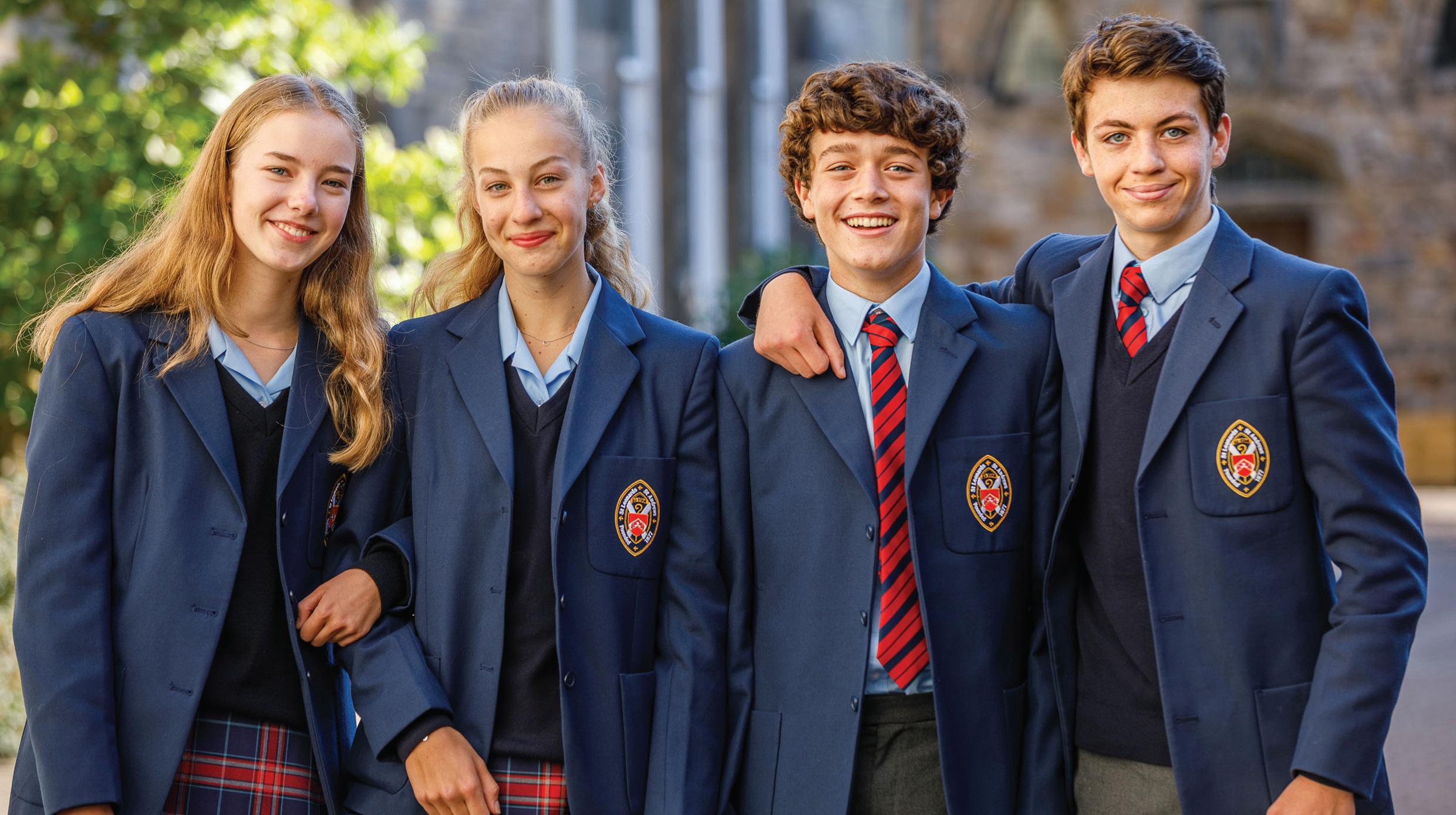
Most pupils in Years 10 and 11 study a modern foreign language, and those who like languages and are linguistically able can continue studying two languages at GCSE level. For French, German and Spanish, the Modern Languages department follows either the Cambridge IGCSE or Pearson Edexcel syllabuses. An IGCSE in Chinese can also be studied at an additional cost. All examination boards divide assessments into four, equally-weighted areas: reading, listening, writing and speaking. These qualifications are excellent preparation for Sixth Form study, be that the Career-related or Diploma Programme. Given the international background of our student body, we also offer first language lessons. At present, we offer Chinese and German with other languages available on request. For further information and prices, please contact the Deputy Head (Academic).
The EAL Department provides English language support for pupils who have a different mother tongue, ensuring that pupils can reach their potential in the mainstream classroom and fully access and enjoy the curriculum. In the GCSE years, pupils have weekly lessons that are designed to develop their subject-specific vocabulary, as well as their academic reading and writing skills. They also learn strategies for vocabulary acquisition, and learn listening and note-taking skills. Finally, pupils have the opportunity to develop their spoken English –the focus is on pronunciation, fluency, accuracy and confidence.
In Years 10 and 11, pupils have the opportunity to study for and sit the English as a Second Language IGCSE. This course is intended for students who have English as a second or additional language, with a CEFR level of approximately B1-C1. The topics and texts studied closely align with the English B syllabus
for the IB Diploma, and are assessed through reading, writing, speaking and listening.
In Years 10-13, pupils are also able to sit the IELTS examinations. The EAL Department offers weekly lessons to support those who wish to obtain this qualification.
The Pearson Edexcel GCSE in Music has three modular components: performing, composing and appraising. It is suitable for any pupil who enjoys creative music-making and has some playing or singing ability, even at elementary level.
The appraising component (40%) covers a wide range of set works – everything from Bach to Queen, Broadway and Afro-Celt Fusion. This is assessed with a written examination at the end of the course.
Enthusiasm and a willingness to learn are the main requirements for the composing and performing aspects of the course (60%). We highly recommend that individual instrumental or vocal lessons are taken to assist with the performing aspect of the course. For the composition element, pupils have the opportunity to develop skills on software including Sibelius and ProLogic. Both components are internally marked and externally moderated as coursework.
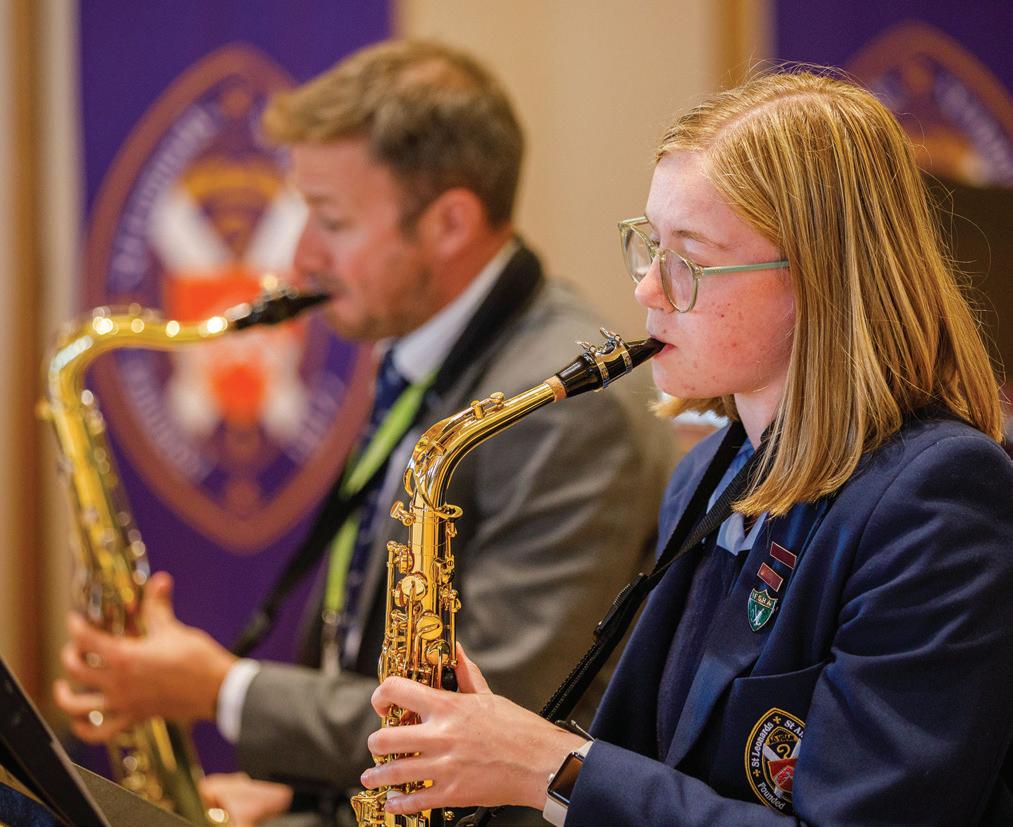
The IGCSE PE course covers both the practical and theoretical aspects of Physical Education and is designed to foster enjoyment in physical activity. It is recommended for those who would like to further their knowledge of sport, and also perform at a high level in at least four sporting activities.
The key topics covered include: anatomy and physiology; health, fitness and training; skill acquisition and psychology; and social, cultural and ethical influences. These theoretical aspects of the course are assessed via a written examination at the end of the course, worth 50% of the overall grade.
The other half of the course is assessed by performance in four physical activities, from at least two of the categories listed below. The coursework is internally assessed and externally moderated.
1. Games – Association Football, Rounders, Hockey, Lacrosse (girls), Rugby Union (boys), Tennis
2. Gymnastics
3. Dance
4. Athletics (track and field)
5. Outdoor and Adventurous Activities
6. Swimming
7. Combat Activities
All pupils will be assessed in hockey, rounders, athletics and swimming (boys and girls), rugby (boys), lacrosse (girls), tennis (girls) and cricket (boys). Candidates may be assessed in other activities not listed above if their performance is at competition standard, for example horse riding, skiing, football and golf.


The Pearson Edexcel Drama GCSE has three key components – devising (40%), performance from text (20%), and theatre makers in practice (40%).
• Devising: pupils create and develop a devised piece from a stimulus. Having performed this devised piece, or presented their design realisation, the pupils then evaluate the process. This culminates in the submission of a written portfolio which is internally assessed and externally moderated.
• Performance from Text: pupils perform in and/or design two key extracts from a performance text. This is assessed by a visiting examiner.
• Theatre Makers in Practice: pupils explore and study a performance text, and also evaluate a live performance of theatre that they have seen. This is assessed via a written examination at the end of the course.
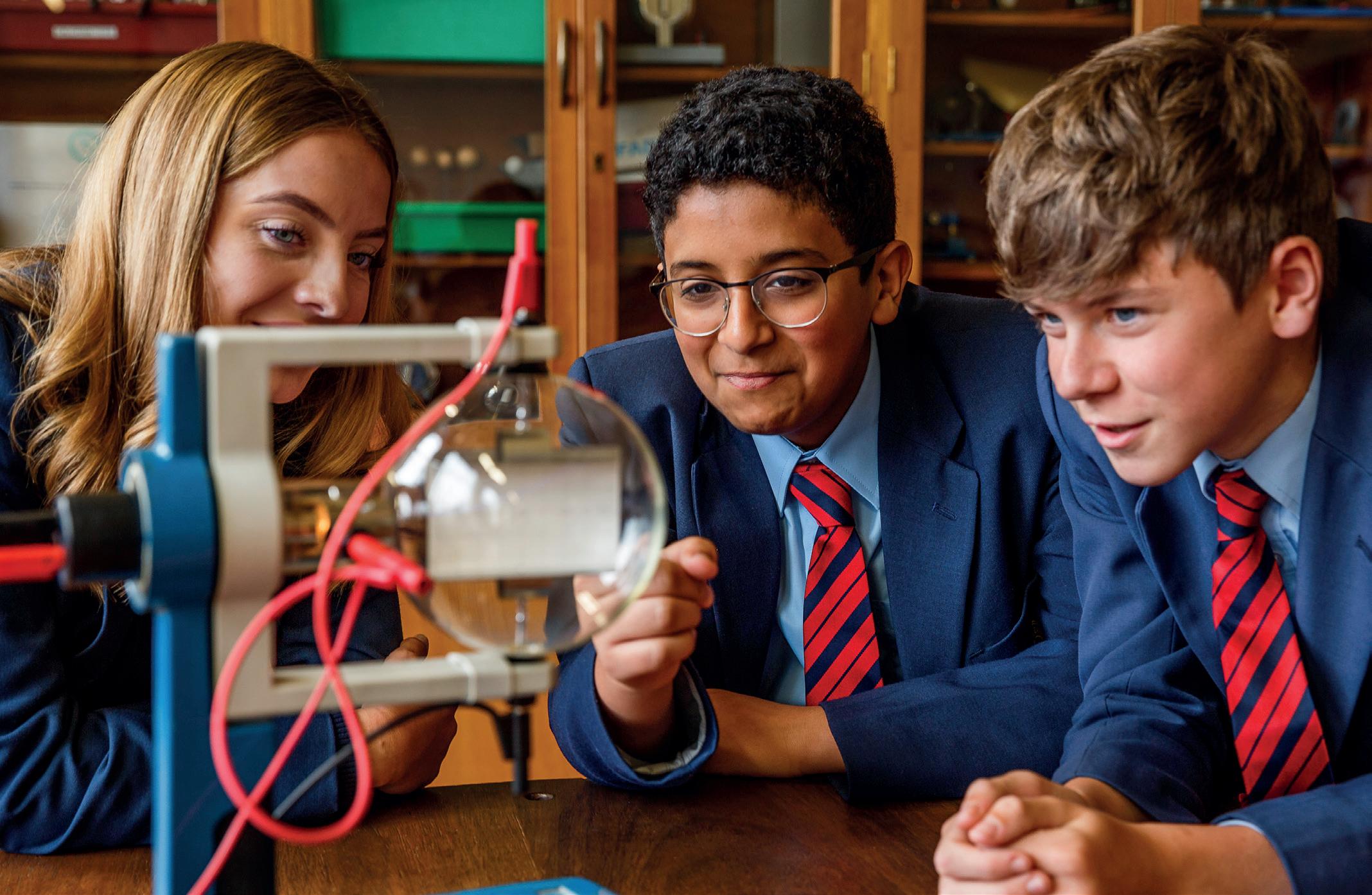
The Trilogy Science (combined science) GCSE, studies Chemistry, Physics and Biology, with each discipline taught by a subject specialist. Practical activities complement the theoretical elements of the course, and pupils receive two GCSEs which are assessed via terminal examinations.
Key topics studied include:
Biology: cell biology; organisation; infection and response; bioenergetics; homeostasis; ecology; and inheritance, variation and evolution.
Chemistry: atomic structure and the periodic table; bonding; stoichiometry; chemical and energy changes; kinetics; equilibria; organic chemistry; chemical analysis; chemistry of the atmosphere.
Physics: forces; energy; electricity; the particle model of matter; atomic structure and radioactivity; waves and electromagnetism.

Years 10 and 11 are both important and exciting. In addition to the curricular focus, working towards GCSE examinations at the end of Year 11, pupils can choose to participate in Trinity Guildhall Drama classes and individual music lessons, as well as choirs, ensembles and productions, and a whole host of co-curricular activities, sports and games. Please note, some after-school activities carry a small additional cost.
In Year 10, pupils take part in hockey, lacrosse, rugby, tennis, cricket, athletics and Scottish Country Dancing during Games lessons, and then select activities as a class in PE.
Options include: football, volleyball, rounders, basketball, ultimate frisbee, Swedish longball, dodgeball and table tennis.
In Year 11, pupils choose between hockey, lacrosse, tennis, Crossfit, football, swimming, table tennis, basketball, badminton, volleyball, golf and fitness (at the University of St Andrews gym) in their Games lessons.
In PE, the Year 11 pupils choose activities as a class, and may also choose to participate in the Duke of Edinburgh Award Scheme.
Learning support is available at all ages and stages at St Leonards. The Head of Support for Learning works closely with the GCSE Leadership Team to ensure that the needs of students eligible for special access arrangements are met. Individual support lessons are also available at an additional cost for the relevant pupils.
For further information about Years 12 and 13 at St Leonards, and for full details of our current IB Career-related Programme and Diploma Programme options, please see our dedicated Sixth Form at St Leonards choices booklet.

